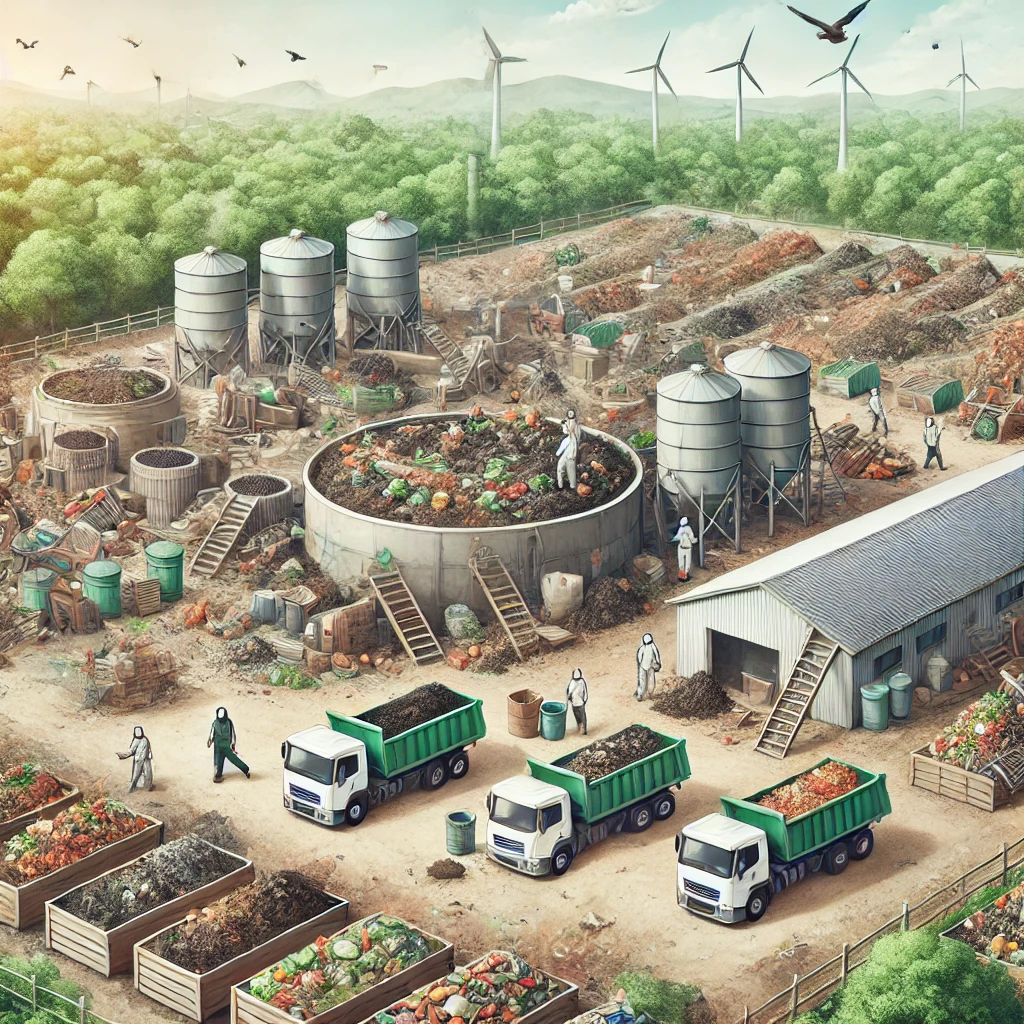Introduction
Imagine a world where waste is not just discarded but transformed into valuable resources. Composting systems present a revolutionary startup idea with the potential to turn organic waste into nutrient-rich compost, driving sustainability and profitability. This blog post delves into the prospects of starting a composting systems business, providing insights into market analysis, unique value proposition, business model, target audience, development and execution, funding and investment, challenges and risks, success stories, and a compelling call-to-action.
Market Analysis
The global composting market is booming, driven by increasing awareness of environmental sustainability and the need for effective waste management solutions. According to recent reports, the composting market size was valued at $6.1 billion in 2020 and is projected to reach $9.2 billion by 2027, growing at a CAGR of 6.1% from 2021 to 2027. Key trends fueling this growth include:
- Rising Demand for Organic Farming: As organic farming gains popularity, the demand for high-quality compost is soaring.
- Government Regulations: Governments worldwide are implementing stringent waste management regulations, promoting composting as a viable solution.
- Urbanization and Waste Generation: Increasing urbanization leads to higher waste generation, necessitating efficient waste management systems.
The potential opportunities in this market are immense, ranging from residential composting solutions to large-scale commercial composting systems.
Unique Value Proposition
What sets this startup idea apart from others in the market is its holistic approach to composting. The proposed composting systems will feature:
- Innovative Technology: State-of-the-art composting technology ensures efficient and rapid decomposition of organic waste.
- User-Friendly Design: Easy-to-use systems designed for households, businesses, and municipalities.
- Sustainability Focus: Emphasis on reducing carbon footprint and promoting circular economy principles.
- Customization Options: Tailored solutions to meet specific needs of different customer segments.
These unique features position the startup to stand out in a competitive market, offering unparalleled value to customers.
Business Model
The business model for the composting systems startup revolves around multiple revenue streams:
- Product Sales: Direct sales of composting systems to residential, commercial, and municipal clients.
- Subscription Services: Monthly or annual subscription plans for maintenance, support, and system upgrades.
- Compost Sales: Selling the produced compost to organic farmers, gardeners, and landscaping companies.
- Consulting Services: Offering expert advice and customized solutions for large-scale composting projects.
Monetization strategies include leveraging e-commerce platforms, partnering with retailers, and exploring B2B sales channels.
Target Audience
Identifying the target audience is crucial for the success of the startup. The primary customer segments include:
- Residential Customers: Homeowners and apartment dwellers seeking eco-friendly waste management solutions.
- Commercial Clients: Restaurants, hotels, and food processing units generating substantial organic waste.
- Municipalities: Local governments looking for efficient waste management systems.
- Agricultural Sector: Organic farmers and gardening enthusiasts requiring high-quality compost.
Understanding the needs and pain points of these segments will drive tailored marketing and sales strategies.
Development and Execution
Developing and executing the composting systems startup involves several key steps:
- Research and Development: Invest in R&D to develop cutting-edge composting technology.
- Prototype Creation: Build prototypes for testing and refinement.
- Manufacturing Setup: Establish a manufacturing facility or partner with an existing manufacturer.
- Market Testing: Conduct pilot programs with selected customer segments to gather feedback.
- Product Launch: Launch the product through strategic marketing campaigns and distribution channels.
- Continuous Improvement: Regularly update and improve the systems based on customer feedback and technological advancements.
The timeline for development and execution spans 12-18 months, with key milestones set for each phase.
Funding and Investment
Securing funding is essential to bring the startup idea to life. Potential funding sources include:
- Angel Investors: Seek early-stage investment from angel investors interested in sustainability.
- Venture Capital: Approach venture capital firms specializing in green technology and waste management.
- Crowdfunding: Launch a crowdfunding campaign to raise awareness and funds from the general public.
- Government Grants: Apply for government grants and subsidies aimed at promoting environmental initiatives.
Financial projections indicate a break-even point within two years, with profitability achievable in the third year.
Challenges and Risks
Launching a composting systems startup comes with its own set of challenges and risks:
- Market Competition: Competing with established players requires a strong value proposition and marketing strategy.
- Regulatory Hurdles: Navigating complex regulations and obtaining necessary permits can be time-consuming.
- Technology Adoption: Convincing customers to adopt new technology may require extensive education and outreach.
- Operational Challenges: Ensuring smooth operations, from manufacturing to distribution, is critical for success.
Mitigation strategies include thorough market research, strategic partnerships, and robust marketing campaigns.
Success Stories and Case Studies
Several startups have successfully ventured into the composting market, serving as inspiration:
- Vermicompost Innovators: Companies specializing in vermicomposting have carved out a niche market, providing high-quality compost using earthworms.
- Community Composting Projects: Initiatives like community composting programs have demonstrated the social and environmental benefits of composting systems.
- Tech-Driven Solutions: Startups integrating IoT and AI in composting systems have showcased the potential for innovation in this field.
These success stories highlight the potential for growth and impact in the composting market.
Call-to-Action
The composting systems startup idea presents a unique opportunity to make a positive impact on the environment while generating substantial profits. If you’re passionate about sustainability and innovative technology, now is the time to explore this exciting venture. Share this article, reach out to potential investors, and join the movement towards a greener future. Together, we can transform waste into wealth and build a sustainable tomorrow.
By focusing on engaging content, market insights, and a comprehensive business plan, this blog post aims to attract potential entrepreneurs and investors interested in the composting systems startup idea.

